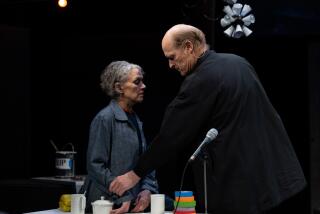EXCERPT: : ‘What Remains?’
- Share via
I stepped onto the street. Were they still there? Would they follow me? They did not. In the opinion of our knowledgeable acquaintances, we had been accorded the lowest degree of surveillance, one meant as warning. Those charged with carrying them out had their orders: conspicuous presence. Step-by-step pursuit was a whole different degree, with one, two, as many as six cars (what an expense!). Yet another was surreptitious surveillance, reserved for objects seriously suspected of illegal acts . . . .
I could find no suspicious characters in the cosmetic shop window. With mild alarm I noticed how I began to breathe freely . . . I suddenly had a dawning presentiment of how strict and absolute freedom can be at the innermost point of a seamless encirclement. They have not even showed me the instruments, I thought. But how did I come upon that? Right: the Berliner Ensemble was performing (Bertolt Brecht’s) “Galileo” that evening--it was there in big black letters on a white banner. No one interfered with that. For it was a play from the times in which the pure dialectic yet retained its validity, likewise the words “positive” and “negative”; times in which there was meaning in speaking the “truth” and keeping silent was bad--not to mention that common lies were wrong and gave the liar a bad conscience, a vestige of which has managed to survive even in our own day. A history of bad conscience, I thought, would have to be included in a consideration of the limits of the sayable.
More to Read
The biggest entertainment stories
Get our big stories about Hollywood, film, television, music, arts, culture and more right in your inbox as soon as they publish.
You may occasionally receive promotional content from the Los Angeles Times.










